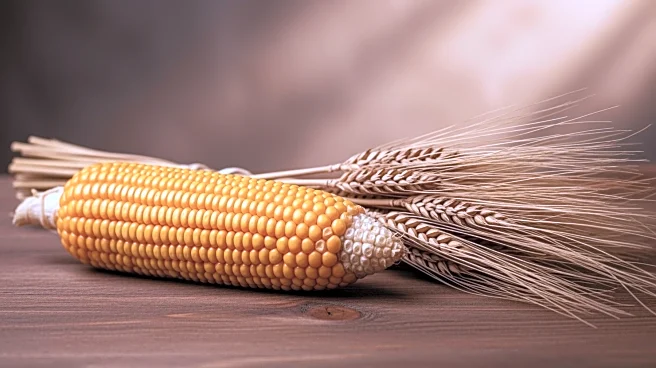What's Happening?
Turkey has announced an increase in the duty-free import quotas for barley and corn, raising the limits to 1 million tonnes each from the previous 700,000 tonnes. This decision was published in the Official
Gazette, indicating a strategic move by the Turkish government to bolster its agricultural imports. The adjustment in quotas is likely aimed at stabilizing domestic supply and prices, ensuring that the country's grain needs are met without excessive reliance on domestic production. This policy change comes amid global agricultural market fluctuations and could influence Turkey's trade relationships with major grain-exporting countries.
Why It's Important?
The increase in duty-free import quotas for barley and corn is significant for several reasons. Firstly, it reflects Turkey's approach to managing its agricultural sector amidst global supply chain challenges. By allowing more imports, Turkey can mitigate potential shortages and price hikes, which are crucial for maintaining food security. Additionally, this move may affect international grain markets, as Turkey is a substantial player in the global agricultural trade. Exporting countries could benefit from increased demand, potentially leading to shifts in trade dynamics and pricing strategies. The decision also highlights Turkey's economic strategy in balancing domestic production with international imports.
What's Next?
Following the quota increase, stakeholders in the agricultural sector, including exporters and domestic producers, will likely assess the implications of Turkey's policy shift. Exporting countries may seek to capitalize on the increased demand by negotiating favorable trade terms. Meanwhile, domestic producers might face increased competition, prompting them to enhance efficiency and production quality. The Turkish government may continue to monitor the impact of this policy on domestic markets and adjust quotas as necessary to ensure economic stability. Additionally, international trade negotiations could be influenced by Turkey's increased import activity, potentially leading to broader discussions on agricultural trade policies.








